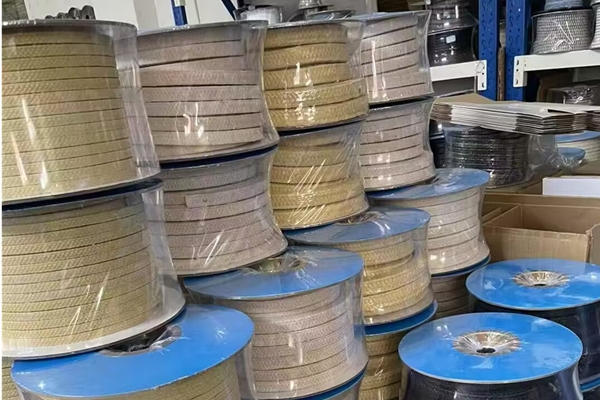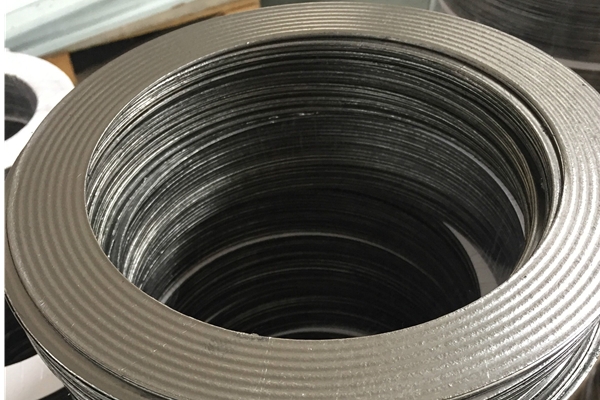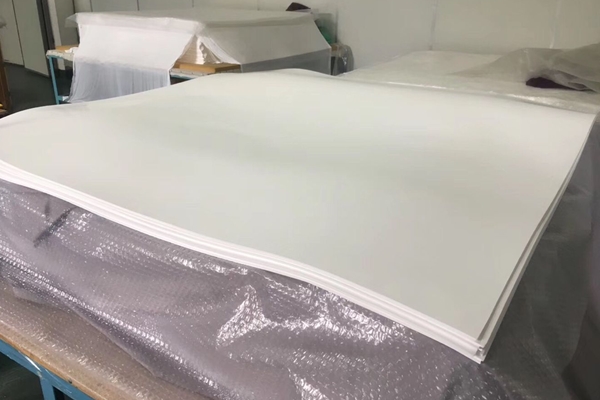Expanded PTFE (ePTFE) gaskets are widely used in industries such as oil and gas, chemical processing, pharmaceuticals, and food production. Their excellent corrosion resistance, high-temperature tolerance, and reliable sealing performance make them an irreplaceable sealing material in industrial applications. However, the quality of Expanded PTFE Gaskets on the market varies significantly, and selecting high-quality products is crucial for many companies. This article outlines key factors to consider when scientifically selecting high-quality ePTFE gaskets.
1. Inspect the Appearance Quality
Appearance is the first step in assessing the quality of Expanded PTFE Gaskets. High-quality ePTFE gaskets typically exhibit the following features:
- Smooth, flawless surface: High-quality gaskets should have a soft and even surface without pores, cracks, warping, or rough edges.
- Uniform color: ePTFE Gaskets with even color distribution and no significant color difference tend to be of higher quality. Low-quality gaskets may display bubbles or uneven coloring, which can impair their sealing effectiveness.
- Smooth feel: When touched, a quality gasket should feel smooth, without noticeable graininess or roughness.
2. Check for Compliance with Thickness Standards
Expanded PTFE Gaskets are commonly available in thickness specifications such as 0.5mm, 1.0mm, 1.5mm, and 2.0mm. Different thicknesses are suitable for different working environments, so selecting the appropriate thickness ensures effective sealing. Some low-quality manufacturers may produce thinner gaskets within the same specification to cut costs, which could compromise the gasket’s sealing performance and even lead to leaks.
During selection, use calipers or micrometers to measure the thickness at various points on the gasket to ensure uniformity. Additionally, compare the ePTFE gasket thickness with the standard specifications to confirm that it meets industry requirements.
3. Density Affects Elastic Recovery
The density of Expanded PTFE Gaskets significantly affects their compression and recovery performance. Generally, higher density improves the gasket’s recovery capability after compression, allowing it to maintain stable sealing under high-pressure conditions. Conversely, lower-density gaskets have weaker elastic recovery, making them more prone to deformation, which can impact sealing performance and shorten their lifespan.
Methods for determining density include weighing and measuring volume to calculate it. High-quality Expanded PTFE Gaskets usually have a moderate density, typically between 0.6–1.0 g/cm³. ePTFE Gaskets within this density range have good compression resilience and provide stable sealing performance in various environments.
4. Test Pressure Resistance
Pressure resistance is a key indicator of an Expanded PTFE Gasket’s quality, especially in high-pressure environments where the gasket’s sealing performance and durability directly depend on its ability to withstand pressure. High-quality Expanded PTFE Gaskets can maintain reliable sealing under high pressure, suitable for both static and dynamic loads.
When purchasing, ask the manufacturer for a pressure resistance test report, or perform your own pressure test. During testing, place the ePTFE gasket in a clamp and adjust the pressure to observe its stability. Typically, quality Expanded PTFE Gaskets can withstand pressures above 10 MPa, while lower-quality products may fail at significantly lower pressures.
5. Evaluate Corrosion Resistance
The corrosion resistance of Expanded PTFE Gaskets makes them ideal for use in industries like chemical processing, pharmaceuticals, and petroleum. High-quality ePTFE gaskets do not corrode in harsh environments involving strong acids or bases, allowing them to maintain stable physical properties and effective sealing.
When selecting Expanded PTFE Gaskets, conduct a corrosion resistance test by immersing the gasket in acidic or alkaline solutions for 24 hours. Afterward, observe changes in the gasket’s appearance, hardness, and color. A high-quality ePTFE gasket will not soften, swell, or degrade, ensuring stable performance in harsh environments over time.
6. Choose Reputable Manufacturers
Choosing a reputable supplier helps ensure the quality of ePTFE gaskets. Quality manufacturers often have strict production and quality control systems, which significantly reduce the risk of defective products. Additionally, reputable manufacturers typically offer more comprehensive after-sales services, ensuring a lasting and reliable customer experience.
In Common, when selecting Expanded PTFE Gaskets, consider the appearance quality, thickness, density, pressure resistance, and corrosion resistance to assess their quality accurately. Choosing the right Expanded PTFE Gaskets not only enhances sealing performance and extends equipment life but also greatly improves operational safety and production efficiency.




